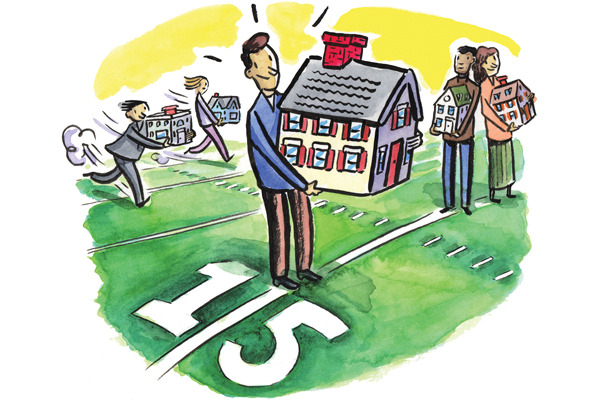Reasons a 15-year mortgage might make sense
 Given the current historically low 30-year mortgage loan rates, not much has been said about the benefit of switching to a 15-year note. However, a 15-year mortgage offers several major advantages such as: a lower interest rate, less interest expense paid, the ability to build equity far quicker, and outright home ownership in half the time (compared to a traditional 30-year note).
Given the current historically low 30-year mortgage loan rates, not much has been said about the benefit of switching to a 15-year note. However, a 15-year mortgage offers several major advantages such as: a lower interest rate, less interest expense paid, the ability to build equity far quicker, and outright home ownership in half the time (compared to a traditional 30-year note).
Though there are distinct advantages to borrowing money for less overall time, the downside is that you have to have the budget available to afford a monthly mortgage payment that will be approximately 40 percent more than standard 30-year terms.
If the budget is available to cover a higher monthly mortgage cost, then as noted above, the benefits are worth consideration. Consider the following:
It is all about the “Benjamins”
Of course, the reference is to $100 bills – and lots of them. Mortgage loans are designed to have the borrower repay most of the interest at the beginning of the term. The shorter the term, the less interest you be charged, the less interest you will be required to repay – and importantly, the more you have going straight to pay down the principal amount of the loan. Checking current rates is a great way to see a clearer picture. According to Quickenloans.comTM, 30-year fixed rates are hovering around 3.38%. Lendingtree.comTM cites 15-year fixed rates as low as 2.65%. Want proof of the savings? Check any of a number of online mortgage calculators and plug in the two time terms and corresponding interest rates to see the notable difference for yourself.
Build equity quicker
As noted above, paying down principal on a 15-year mortgage loan also enables a borrower to build equity faster through two different, basic methods. The first is the actual difference between the amount owed and the value the property yielded from making payments over time. The second and even more pronounced on many occasions is the amount of value the property gains over time, known as the increase in market value. In both cases, equity means ultimately more money in an owner’s pocket. Of course, equity only becomes profit when a property is sold. However, having a 15-year note offers distinct advantages over a note that is twice as long, as most homeowners move approximately every 13 years (according to an online research site estimate).
Help in retirement
If you are planning on retiring in the next 15 years, then it makes sense – if you can afford it – to obtain a 15-year mortgage and have the loan paid off at the same time you expect to stop working. Again, the important consideration is if you can afford the increased payment – though it stands to reason that it is better to have a higher payment when you are working than when you will theoretically have less income.
Tips to increase your chances of successfully obtaining a 15-year mortgage:
A very good (high) credit score.
A low debt-to-income ratio.
Enough monthly income to comfortably qualify for the shorter term.
An honest appraisal of your monthly budget and the ability to stick to it.